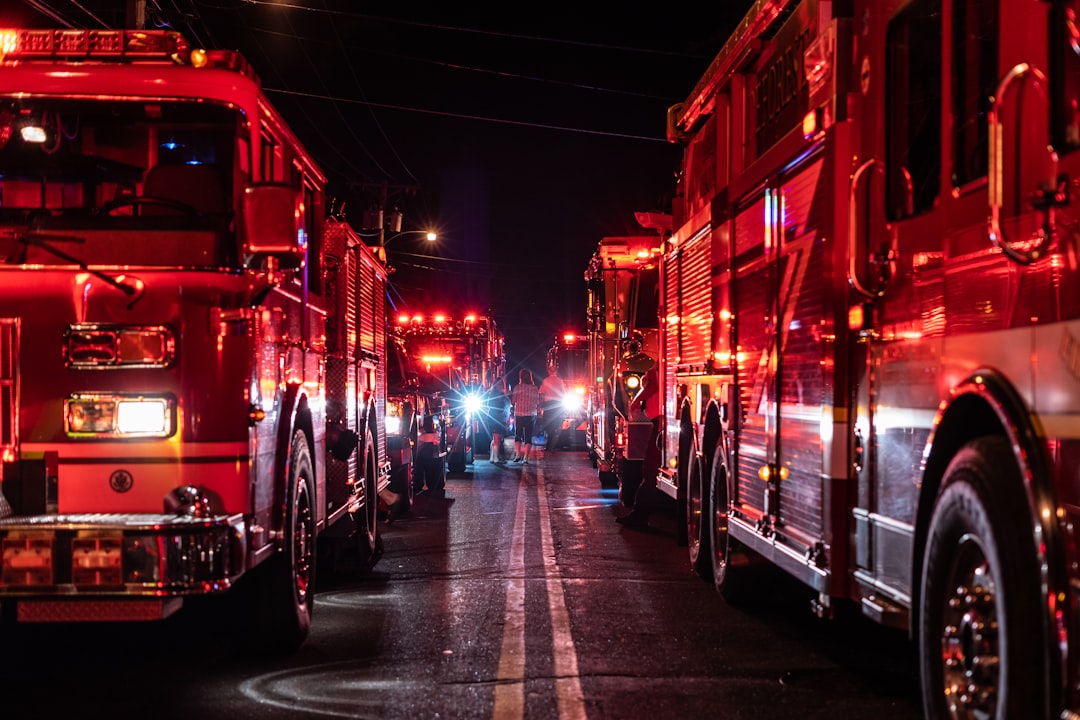Firefighter Kaitinei Ahi
Firefighters control and put out fires, help rescue people and animals, and educate the public about fire safety and fire prevention.
Firefighters may do some or all of the following:
- educate the public about fire prevention
- install and inspect smoke alarms or fire extinguishers in homes, boats, aircraft and businesses
- put out fires and prevent fires from spreading
- operate vehicles such as firetrucks and helicopters
- investigate the causes of fires and chemical spills
- attend accidents or emergencies such as car accidents, chemical spills and natural disasters
- provide first aid
- carry out search and rescue operations
- help plan and develop evacuation schemes for commercial buildings
- maintain and service fire fighting equipment.
Physical Requirements
Firefighters need to have excellent fitness and health and must be strong as the job is physically demanding. They also need to have good hearing and eyesight, normal colour vision and no breathing problems.
Useful Experience
Useful experience for firefighters includes:
- volunteer firefighting
- working with people from a diverse range of communities, ethnicities and backgrounds
- being part of a team such as a sports team
- involved in community-based activities such as coaching sports
- teaching, training or coaching experience.
Personal Qualities
Firefighters need to be:
- good communicators
- able to relate well to a wide range of people and cultures
- confident and able to remain calm in emergencies
- good at solving problems and making decisions
- patient and helpful
- disciplined, honest and reliable
- able to work as part of a team.
Skills
Firefighters need to have knowledge of:
- different types of fires and chemical spills and how to deal with them
- different methods for rescuing people from hazardous situations
- how to check, maintain and use firefighting equipment
- relevant fire safety legislation
- fire safety precautions, and how these relate to buildings and building construction
- how to handle hazardous goods
- how to identify potential fire hazards and risks and eliminate or reduce them
- first aid
- how to educate people about fire prevention.
Conditions
Firefighters:
- are usually rostered to work four days on, then four days off, which include weekends and public holidays. They work 12-hour shifts, either 8am to 8pm or 8pm to 8am
- are based at fire stations, New Zealand Air Force bases and airports
- may work in hazardous conditions involving fire, poisonous smoke and chemicals
- travel nationally and internationally to attend emergency events, peace-keeping activities or war zones.
Subject Recommendations
No specific secondary education is required for community firefighters, but physical education to at least NCEA Level 1 is useful.
Ten credits in NCEA Level 1 Literacy and Numeracy are required for air force firefighters.
Related Courses
Firefighters can earn around $54K-$77K per year.
Pay for firefighters varies depending on experience, responsibilities and performance.
- Trainee firefighters usually earn $54,000 a year.
- Qualified firefighters earn a base salary of $69,000.
- Senior firefighters earn a base salary of $77,000.
- With extra training, firefighters can become station officers and earn a base salary of $88,000 to $108,000.
- Operational managers can earn between $126,000 and $184,000 a year.
Firefighters can also earn overtime and allowances for extra duties.
Volunteer firefighters are not paid.
Sources: Fire and Emergency New Zealand, 'New Zealand Professional Firefighters Collective Employment Agreement' and 'Fire Emergency Commanders Association Collective Employment Agreement', www.fireandemergency.nz, accessed December 2022.
Firefighters may move into management roles to become senior firefighters, station officers or air force officers.
Firefighters may also progress to jobs in areas such as:
- training
- fire investigation
- fire protection
- fire risk management.
Years Of Training
<1 year of training required.To become a firefighter you need to:
- be a permanent resident or citizen
- be 18 years of age or older
- pass a police check
- pass literacy, numeracy and problem solving tests
- pass medical, physical fitness and psychological tests.
To begin work as a trainee firefighter you need to pass a 12-week training course.
- Fire and Emergency New Zealand website – information on entry requirements
- Fire and Emergency New Zealand website – videos on preparing for the recruitment process
To become a firefighter for the New Zealand Air Force you need to:
- be a permanent resident or citizen
- be 17 years of age or older
- pass medical,physical fitness, colour vision and psychological tests
- be free from criminal convictions
- hold 10 credits in NCEA Level 1 Literacy and Numeracy
- hold a Class 1 or 2 full manual drivers' licence.
Air force firefighters then complete:
- 12 weeks of basic military training at the RNZAF Base Woodbourne near Blenheim
- 12 weeks of fire and rescue training at the Linton Military Camp near Palmerston North
- seven weeks of driver training
- seven weeks of advanced fire trade training.
The Vulnerable Children Act 2014 means that if you have certain serious convictions, you can’t be employed in a role where you are responsible for, or work alone with, children.

 Heretaunga College
Heretaunga College